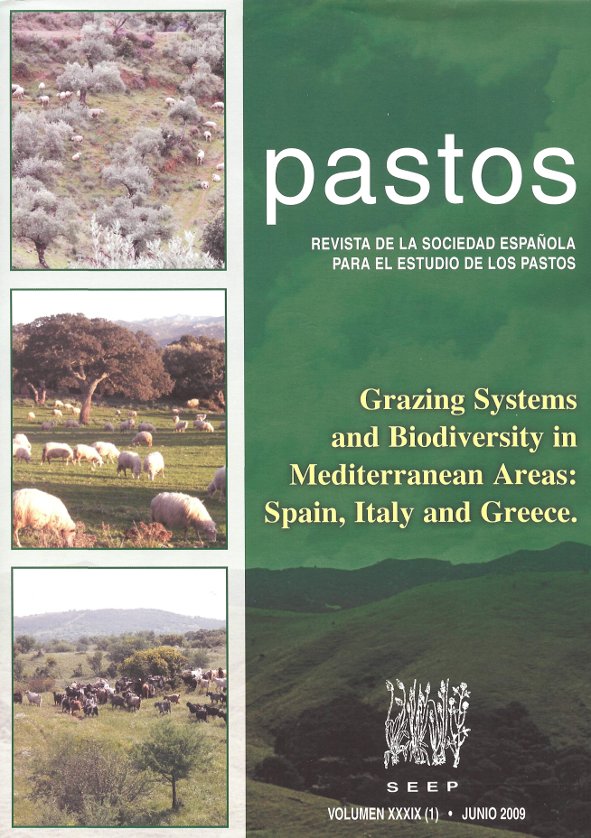GRAZING SYSTEMS AND BIODIVERSITY IN MEDITERRANEAN ÁREAS: SPAIN, ITALY AND GREECE
Resumen
Large Scale Grazing Systems (LSGS) are much more than large expanses of seminatural vegetation. LSGS are complex structures emerging from the interaction of human behaviour and natural resources. Man-made and nature laws are intertwined in systems of grassland management to produce large-scale effects. LSGS actually harbour a significant part of European natural valúes, but are also places where a small part of the rural population strives to make a living under harsh environmental and social conditions. This research is aimed at responding to what is left behind under current trend (abandonment). We have dealt with identification, analysis and diagnosis, but not with prescription. Our main argument is that extensive grazing is congenial with natural valúes, but is the former that gives way to the latter. This assumption was tested for the main LSGS of three Mediterranean countries of the European Union (EU): Spain, Italy, and Greece. Survey tools (fact-sheets, survey guidelines and sustainability questionnaires) were devised within the EU-funded LACOPE project and further, groups of external experts, within the three countries, were requested for collaboration. This research encompasses two parts. In the Presentation section, the most representative LSGS in Spain, Italy and Greece were identified and a comparative typology elaborated based on individual profiles for external experts. The Successional Trajectories and Target Vegetation types sections are devoted to the relationships between grazing and biodiversity, as assessed by plant species richness and vegetation types. In this case, external experts' contribution, literature review and further cooperative and interdisciplinary job were used. We detected general patterns of shrubby overgrowth on grazing cessation, increasing species richness with extensive grazing and plant species adapted to grazing or post-grazing succession. The relationship between grazing and biodiversity was not univocal, and spatial and temporal management of grazing play a major role. It must be stressed the importance of adequate knowledge of the species and habitat specific impacts of grazing regimes (temporality and grazing intensity). LSGS in the three countries face some common threats from intensification in the lowlands to abandonment in the far-reaching and less favoured grazing grounds. Harsh workings conditions, social fragility, lacks of assurance of family business turn over, and poor economic performance, are common drivers of change, under a global setting of economic development. However, differential diagnosis of these constraints and alternative management practices (prescription) at the regional level are further required in devising and implementing sensible grazing management plans and policy frameworks.Descargas
Los datos de descarga aún no están disponibles.
Descargas
Publicado
2011-11-23
Número
Sección
Artículos
Cómo citar
GRAZING SYSTEMS AND BIODIVERSITY IN MEDITERRANEAN ÁREAS: SPAIN, ITALY AND GREECE. (2011). Pastos, 39(1), 9-154. https://polired.upm.es/index.php/pastos/article/view/1712










